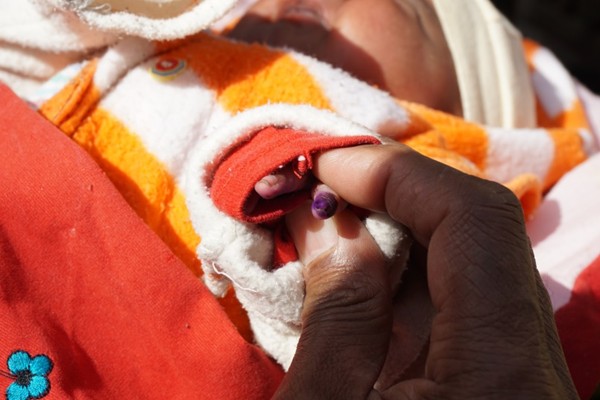
World Health Organization’s (WHO) World Immunization Week 2016 kicks off this week with the aim of raising international awareness on the critical importance of full immunization from childhood through to adulthood. One of the campaign’s major focuses is the crippling poliovirus; incurable, but preventable with a simple vaccine. World Immunization Week is an opportunity to celebrate the progress marked by the drop in cases by 99.9% in the last three decades; but it also calls for increased momentum for the final push to overcome the last remaining pockets of the virus and wipe out the disease.
This World Immunization Week, experts are cautiously optimistic that we could see the end of the virus very soon. In 2015, a total of 74 cases of polio were reported in Afghanistan and Pakistan, the only two remaining polio endemic countries, down from 334 cases worldwide in 2014.
“We’ve come a long way since the establishment of the GPEI in 1988, from 125 polio-endemic countries to just two,” said Chris Maher, manager of WHO’s regional polio eradication unit in Amman, Jordan. “We are at the final frontier of eradication. A lot of work is still needed, but if we can stop polio transmission in Afghanistan and Pakistan by the close of 2016, the whole world will finally be free of wild poliovirus.”
As pressure mounts around achieving this historic goal – the second of its kind since the eradication of small pox almost three decades ago – the world spotlight shines hot on Afghanistan and Pakistan as these countries work to take the world across the finish line.



